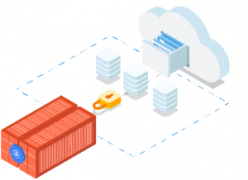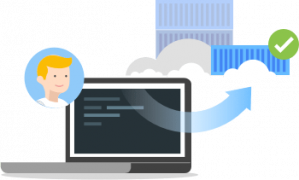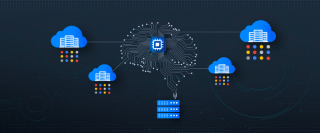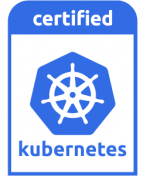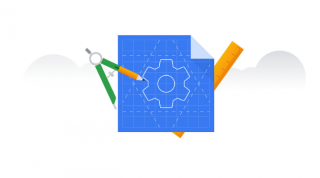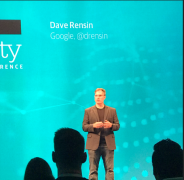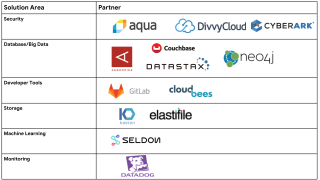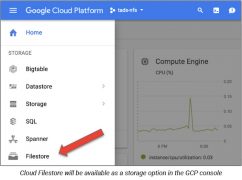Topic: google
Google to create new subsea cable connecting Africa and Europe
Google is trying to make the world more connected with the announcement of a new subsea cable that will connect Africa and Europe. The new cable, Equiano, is entirely funded by Google, and the third international cable that it has funded entirely on its own. Equiano is also the 14th subsea cable that Google has … continue reading
Google Kubernetes Engine Sandbox mitigates container escape vulnerabilities
Companies running applications that use untrusted code can experience “container escape,” a vulnerability tracked as CVE-2019-5736, that can hijack the shared host operating system and wreak havoc from there. According to the Information Technology Library, runc used in Docker before 18.09.2 and other products, allows attackers to overwrite the host runc binary within a new … continue reading
SAP partners with hyperscalers to move more companies to the cloud
SAP is teaming up with cloud providers Amazon, Microsoft and Google as well as global strategic service partners to walk companies through their transition to cloud-based business innovation. The project called Embrace will tailor the core components to each company based on the language and context of their industry. This includes roadmapping the platform, software, … continue reading
Google previews new Knative-based managed Kubernetes service
Google Cloud is adding a complete managed serverless offering that handles all forms of infrastructure management for DevOps teams, taking low-level programming and deployment tasks off of their hands. The new Google Cloud Run, launched at this week’s Google Cloud Next conference in San Francisco, aims to let developers move any type of code into … continue reading
Google expands its Compute Engine offerings with new VMs
Google Cloud is expanding its Compute Engine offerings with new Compute-Optimized VMs and Memory-Optimized VMs, both of which are based on second-generation Intel Xeon Scalable Processors. “Whether you’re running compute-bound applications for HPC or large, in-memory database applications like SAP HANA, you need the right mix of compute resources for the job, while also keeping … continue reading
Google Kubernetes Engine gets enterprise-level security features
Google Cloud has announced new networking features to enhance security and privacy within container infrastructures. The new Google Kubernetes Engine (GKE) features are focused specifically on private clusters, master authorized networks, and shared Virtual Private Cloud (VPC). “These new features enable you to limit access to your Kubernetes clusters from the public internet, confining them … continue reading
Google introduces Stackdriver IRM for Site Reliability Engineering
Google announced a new Site Reliability Engineering-inspired tool for investigating, understanding, mitigating and recovering from incidents quickly and efficiently. Stackdriver Incident Response and Management (IRM) on Google Cloud Platform is available as an alpha version and features new monitoring tools for SRE journeys. After facing availability and reliability challenges, Google created SRE and SRE principles … continue reading
O’Reilly Velocity: SRE is an opinionated implementation of DevOps
When Google first came up with the term Site Reliability Engineering, it stemmed from its own production growth and challenges. “SRE is what you get when you treat operations as if it’s a software problem. Our mission is to protect, provide for, and progress the software and systems behind all of Google’s public services — … continue reading
DeepMind and Google are using AI to cool data centers
DeepMind and Google are utilizing their AI-powered recommendation system to provide data center cooling. The recommendation system was first developed in 2016 as a way to improve the energy efficiency of Google’s data centers. “Now we’re taking this system to the next level: instead of human-implemented recommendations, our AI system is directly controlling data centre … continue reading
Istio open-source service mesh launches
Istio, an open-source project formed last year by Google, IBM and the ride-sharing service Lyft to create a consistent way to connect, manage, secure and monitor Kubernetes-based clusters of microservices, is now ready for production. The creators of the spec today announced the official release of Istio 1.0, which defines a common way to manage … continue reading
Google introduces commercial Kubernetes applications in the Google Cloud Platform Marketplace
Google is introducing the availability of commercial Kubernetes applications today in the Google Cloud Platform Marketplace. “Building, deploying and managing applications with Kubernetes comes with its own set of unique challenges. Today, we are excited to be the first major cloud provider to offer production-ready commercial Kubernetes apps right from our marketplace, bringing you simplified … continue reading
Cloud Filestore brings high-performance file storage to Google Cloud Platform
Google has added file storage capabilities to Google Cloud Platform with the addition of Cloud Filestore. Cloud Filestore is a file storage system for applications that need a file system interface and a shared file system. It enables high performance for applications that require high throughput, low latency, and high IOPS, such as content management … continue reading


